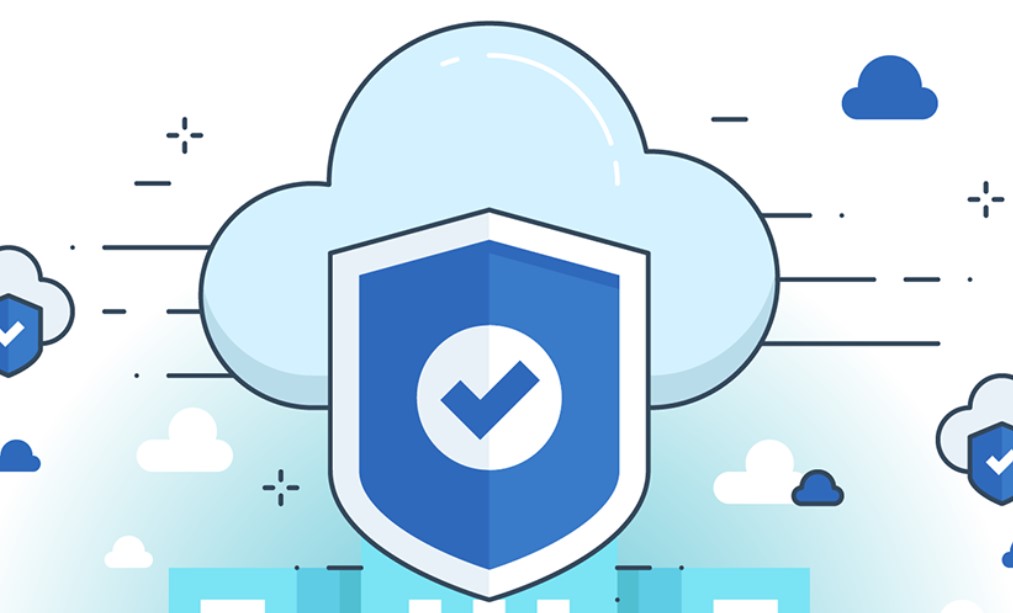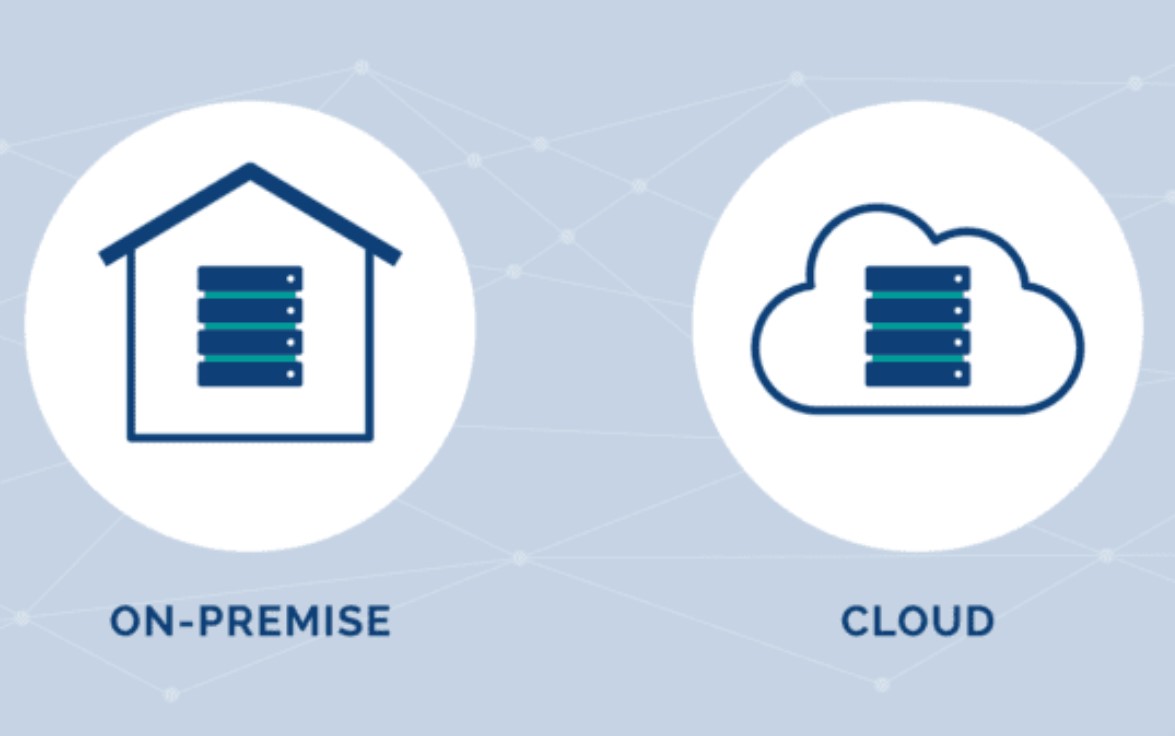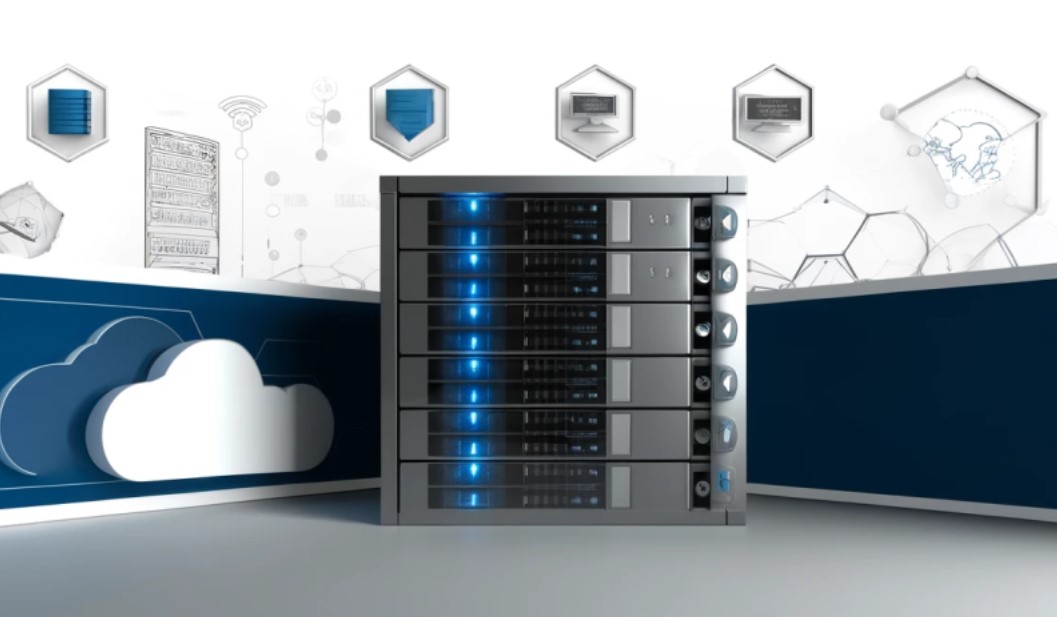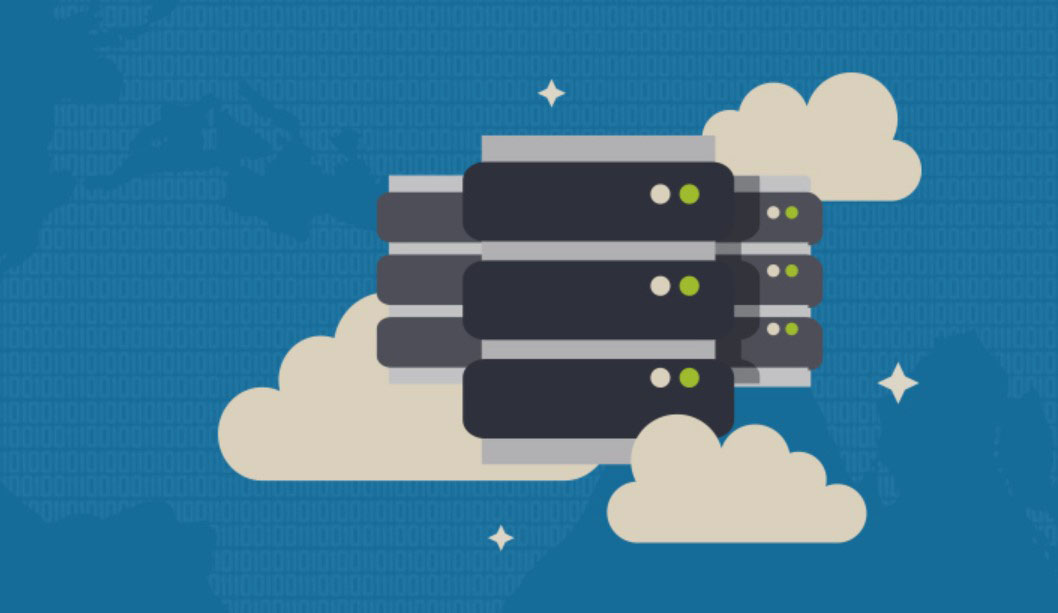
In today’s digital era, the security of your data is paramount. As businesses increasingly move their operations to the cloud, ensuring robust cloud-based security becomes essential. This comprehensive guide will explore the top cloud-based security solutions, their benefits, and how to choose the right one for your needs.
What Is Cloud-Based Security?

Cloud-based security involves the measures and technologies used to protect data, applications, and services hosted in the cloud from cyber threats. Unlike traditional security models that focus on on-premises protection, cloud-based security solutions provide a scalable and flexible approach to safeguarding digital assets. Here’s how it works:
Key Components of Cloud-Based Security
Cloud-based security solutions are essential for protecting data, applications, and infrastructure in the cloud. They leverage a combination of advanced technologies and practices to safeguard against cyber threats. Here are the key components of cloud-based security:
1. Data Encryption
Data encryption is crucial for protecting sensitive information. It involves encoding data both at rest (stored data) and in transit (data being transferred). Advanced encryption standards like AES-256 ensure that data remains confidential and secure from unauthorized access. This encryption protects data even if a breach occurs, as the information remains unreadable without the decryption key.
2. Identity and Access Management (IAM)
IAM systems are vital for managing user identities and controlling access to resources. IAM ensures that only authorized users can access specific data and applications. It includes features like multi-factor authentication (MFA), single sign-on (SSO), and role-based access control (RBAC). These features enhance security by requiring multiple verification methods and limiting access based on user roles.
3. Intrusion Detection and Prevention Systems (IDPS)
IDPS monitors network traffic for suspicious activities and potential threats. Intrusion detection systems (IDS) identify and alert administrators about potential threats, while intrusion prevention systems (IPS) actively block and mitigate these threats. By analyzing traffic patterns and using behavioral analytics, IDPS can detect anomalies and respond to threats in real-time.
4. Security Information and Event Management (SIEM)
SIEM solutions aggregate and analyze security data from various sources to provide a comprehensive view of an organization’s security posture. SIEM tools collect logs and events from networks, applications, and endpoints, enabling the detection of security incidents and facilitating incident response. They also support compliance by providing audit trails and reporting capabilities.
5. Compliance and Governance
Compliance and governance tools help organizations adhere to industry regulations and standards. These tools ensure that security practices meet legal and regulatory requirements, such as GDPR, HIPAA, and PCI DSS. They provide auditing, reporting, and policy enforcement capabilities to maintain compliance and mitigate risks.
By integrating these key components, cloud-based security solutions provide a robust defense against cyber threats, ensuring the protection and integrity of data and applications in the cloud.
Benefits of Cloud-Based Security
- Scalability:
- Easily scales with your business growth.
- Adapts to varying workloads and demands.
- Cost-Effectiveness:
- Reduces the need for physical security infrastructure.
- Operates on a subscription-based model, lowering upfront costs.
- Accessibility:
- Provides remote access to security tools and data.
- Facilitates management from any location.
- Automated Updates:
- Ensures continuous protection with automatic security updates.
- Reduces the burden on in-house IT teams.
- Enhanced Collaboration:
- Enables secure collaboration among distributed teams.
- Protects shared data and applications.
Top Cloud-Based Security Solutions

Here are five top-rated cloud-based security solutions that cater to different business needs. Each product offers unique features and benefits, making it easier to find the right fit for your organization.
1. Microsoft Azure Security Center
- Website: Microsoft Azure Security Center
- Details: Azure Security Center provides unified security management and advanced threat protection across hybrid cloud workloads. It offers continuous assessment, threat detection, and security recommendations.
- Use Case: Ideal for businesses using Microsoft Azure services looking for integrated security solutions.
- Benefits:
- Unified security management
- Advanced threat protection
- Continuous security assessment
- Price: Varies based on usage and specific security services.
2. Amazon Web Services (AWS) Security Hub
- Website: AWS Security Hub
- Details: AWS Security Hub centralizes security alerts and compliance status across AWS accounts. It integrates with other AWS services to provide comprehensive security analysis.
- Use Case: Suitable for organizations utilizing AWS for their cloud infrastructure.
- Benefits:
- Centralized security management
- Integration with other AWS services
- Continuous compliance monitoring
- Price: Based on the number of security checks and events.
3. Google Cloud Security Command Center (SCC)
- Website: Google Cloud Security Command Center
- Details: Google Cloud SCC provides a comprehensive view of security and data risks across Google Cloud. It offers threat detection, security insights, and compliance management.
- Use Case: Best for businesses operating within the Google Cloud ecosystem.
- Benefits:
- Centralized security visibility
- Threat detection and response
- Compliance and governance tools
- Price: Pricing depends on the services used and data volume.
4. IBM Cloud Security
- Website: IBM Cloud Security
- Details: IBM Cloud Security offers a range of security solutions, including data protection, identity and access management, and threat management. It provides robust security across hybrid and multi-cloud environments.
- Use Case: Ideal for enterprises needing comprehensive security across diverse cloud environments.
- Benefits:
- Extensive security portfolio
- Integration with IBM’s AI capabilities
- Hybrid and multi-cloud support
- Price: Customized pricing based on specific security needs and services.
5. Cisco Cloud Security
- Website: Cisco Cloud Security
- Details: Cisco Cloud Security includes solutions such as Cisco Umbrella, which provides secure internet access and threat intelligence. It also offers cloud access security broker (CASB) capabilities.
- Use Case: Suitable for organizations looking for comprehensive internet and cloud security.
- Benefits:
- Secure internet gateway
- Threat intelligence and visibility
- CASB capabilities
- Price: Subscription-based pricing tailored to the number of users and services.
Comparison Table
To help you choose the right cloud-based security solution, here’s a comparison table highlighting the key features, pros, cons, and pricing of the top products:
| Feature | Azure Security Center | AWS Security Hub | Google Cloud SCC | IBM Cloud Security | Cisco Cloud Security |
|---|---|---|---|---|---|
| Scalability | Highly scalable | Highly scalable | Highly scalable | Highly scalable | Highly scalable |
| Cost | Varies based on usage | Based on security checks | Based on services used | Customized pricing | Subscription-based |
| Integration | Seamless with Azure services | Seamless with AWS services | Seamless with Google Cloud | Integration with IBM AI | Integrates with Cisco Umbrella |
| Threat Detection | Advanced threat protection | Centralized threat alerts | Comprehensive threat detection | Advanced threat management | Threat intelligence and visibility |
| Compliance | Continuous assessment | Continuous monitoring | Compliance management | Extensive compliance tools | CASB capabilities |
Detailed Use Cases Cloud-Based Security

Cloud-based security solutions offer robust protection for data, applications, and infrastructure across various industries. They provide scalable, cost-effective, and flexible security measures to safeguard against an ever-evolving landscape of cyber threats. Here are detailed use cases highlighting the practical applications and benefits of cloud-based security:
1. Small and Medium-Sized Enterprises (SMEs)
Problem Solved:
- Limited budget for IT security infrastructure.
- Need for scalable security solutions that can grow with the business.
Why People Need It:
- SMEs often operate with tight budgets and cannot afford significant upfront investments in traditional security hardware and software. Cloud-based security solutions offer a cost-effective way to implement robust security measures without the need for large capital expenditures.
Benefits:
- Cost-Effectiveness: Pay-as-you-go pricing models reduce initial costs.
- Scalability: Easily scale security resources as the business grows.
- Automatic Updates: Ensure the latest security patches and features are always in place without manual intervention.
Example:
A growing e-commerce startup uses Microsoft Azure Security Center to secure its online storefront. The solution provides continuous security assessment and advanced threat protection, allowing the startup to focus on business growth rather than IT security management.
2. Healthcare Organizations
Problem Solved:
- Protecting sensitive patient data and complying with strict regulatory requirements (e.g., HIPAA).
- Ensuring the security of electronic health records (EHR) systems.
Why People Need It:
- Healthcare organizations handle vast amounts of sensitive patient data that must be protected from breaches and unauthorized access. Cloud-based security solutions provide the necessary tools to safeguard this data and ensure compliance with healthcare regulations.
Benefits:
- Data Encryption: Protects patient data both in transit and at rest.
- Compliance: Tools and reports to help meet regulatory requirements.
- Threat Detection: Real-time monitoring for suspicious activities and potential breaches.
Example:
A hospital network implements Google Cloud Security Command Center (SCC) to monitor and secure its cloud-based EHR systems. The SCC provides centralized security visibility and threat detection, ensuring patient data remains confidential and compliant with HIPAA regulations.
3. Financial Services
Problem Solved:
- Protecting sensitive financial data from cyber threats and fraud.
- Meeting stringent regulatory requirements for data security and privacy.
Why People Need It:
- Financial institutions manage highly sensitive data that is frequently targeted by cybercriminals. Ensuring the security of this data is paramount to maintaining customer trust and regulatory compliance. Cloud-based security solutions offer advanced protection against sophisticated cyber threats.
Benefits:
- Advanced Threat Protection: Protects against phishing, malware, and other cyber threats.
- Compliance: Tools to help meet financial regulations such as PCI DSS.
- Identity and Access Management (IAM): Controls and monitors user access to sensitive data.
Example:
A credit union uses AWS Security Hub to secure its cloud infrastructure. The solution centralizes security alerts and compliance status across its AWS accounts, helping the credit union protect sensitive financial data and comply with industry regulations.
4. Retail Businesses
Problem Solved:
- Securing customer data and payment information.
- Protecting against cyber threats during peak shopping seasons.
Why People Need It:
- Retail businesses must protect customer data, including payment information, to maintain trust and comply with data protection regulations. Cloud-based security solutions provide robust protection against cyber threats, especially during high-traffic periods like holiday shopping seasons.
Benefits:
- Scalability: Scale security measures during peak shopping seasons.
- Threat Intelligence: Real-time threat detection and response.
- Data Encryption: Secure customer data and payment information.
Example:
An online retailer uses Cisco Cloud Security to secure its e-commerce platform. The solution provides a secure internet gateway and advanced threat intelligence, protecting customer data and ensuring a safe shopping experience.
5. Educational Institutions
Problem Solved:
- Protecting student and faculty data.
- Ensuring the security of online learning platforms.
Why People Need It:
- Educational institutions handle sensitive information related to students and faculty, which must be protected from unauthorized access and breaches. With the rise of online learning, securing digital platforms is also critical. Cloud-based security solutions offer comprehensive protection for educational data and systems.
Benefits:
- Data Protection: Secure student and faculty data.
- Platform Security: Protect online learning platforms from cyber threats.
- Compliance: Help meet educational data protection regulations.
Example:
A university deploys IBM Cloud Security to secure its digital infrastructure. The solution provides data protection, threat management, and compliance tools, ensuring the security of student information and online learning systems.
How to Buy
Microsoft Azure Security Center
- How to Buy: Visit the Azure Security Center website and sign up for an Azure account. Select the security services you need and follow the setup instructions.
- Price: Varies based on usage and specific security services.
AWS Security Hub
- How to Buy: Go to the AWS Security Hub website and create an AWS account. Choose the security services required and configure your settings.
- Price: Based on the number of security checks and events.
Google Cloud Security Command Center
- How to Buy: Access the Google Cloud SCC website and sign up for a Google Cloud account. Select the desired security services and follow the setup process.
- Price: Pricing depends on the services used and data volume.
IBM Cloud Security
- How to Buy: Visit the IBM Cloud Security website and request a consultation. Choose the security solutions that fit your needs and get a custom quote.
- Price: Customized pricing based on specific security needs and services.
Cisco Cloud Security
- How to Buy: Go to the Cisco Cloud Security website and explore the available security solutions. Contact sales for a custom quote based on your requirements.
- Price: Subscription-based pricing tailored to the number of users and services.
FAQ
- What is cloud-based security?
- Cloud-based security involves protecting data, applications, and services hosted in the cloud using various security measures and technologies.
- How does cloud-based security differ from traditional security?
- Unlike traditional security that focuses on on-premises protection, cloud-based security provides scalable and flexible protection for cloud environments.
- Why is cloud-based security important?
- It ensures the protection of digital assets, enhances compliance with regulations, and provides scalability and cost savings.
- Can small businesses benefit from cloud-based security solutions?
- Yes, cloud-based security solutions are scalable and cost-effective, making them suitable for businesses of all sizes.
- How do I choose the right cloud-based security solution?
- Consider factors such as scalability, cost, integration with existing services, threat detection capabilities, and compliance support.
In the digital age, protecting your data with robust cloud-based security solutions is essential. By understanding the benefits, comparing top products, and evaluating your specific needs, you can make an informed decision that best suits your organization.





